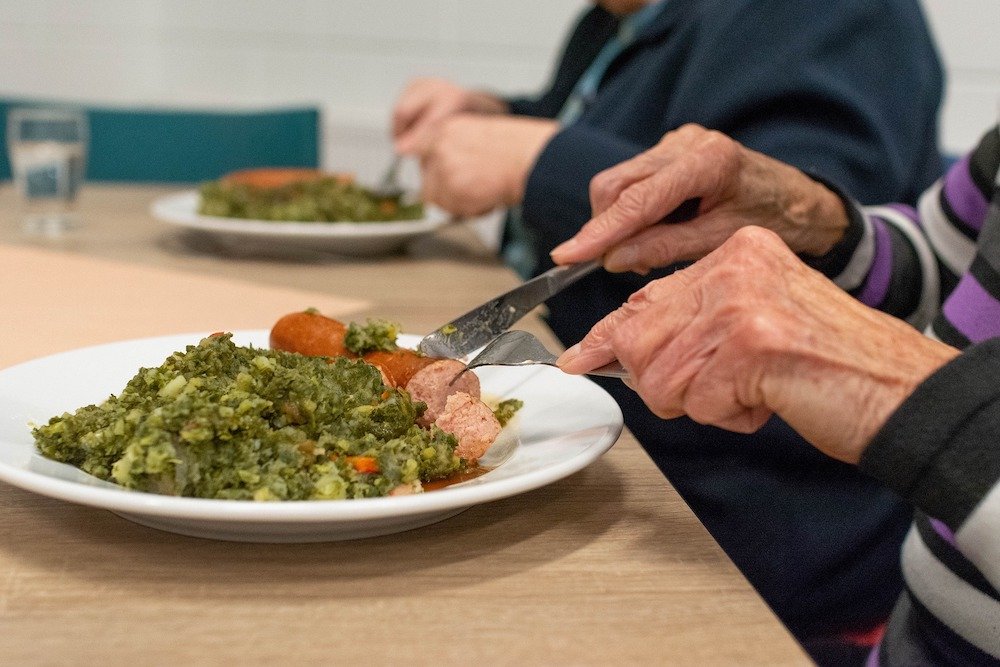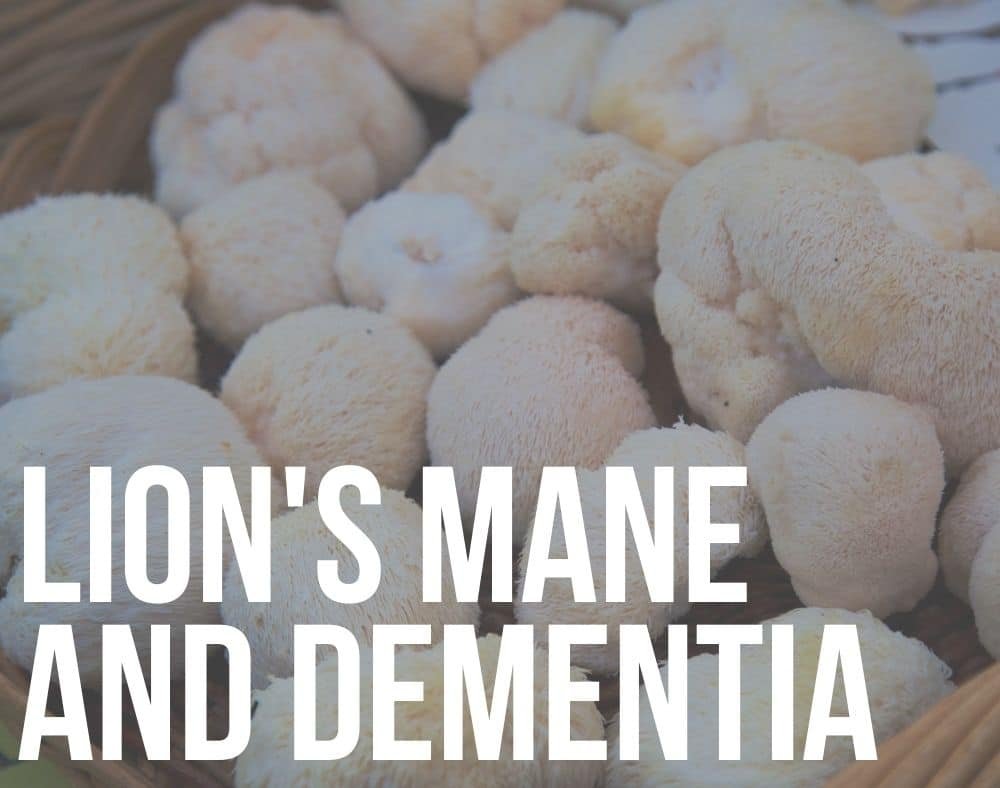For a person with dementia, the topic of dementia and eating is important to discuss.
This is because individuals with dementia usually go through several changes; one of them being how they eat.
Below you will explore some of the common eating challenges persons with dementia face.
It is important to understand each to act accordingly.
Contents
Common Eating Challenges for Persons with Dementia
Poor Appetite

A high percentage of individuals who have dementia experience lack of appetite at some point.
There are several explanations of why individuals can lose their appetite, including:
1. Depression
It is common for people with dementia to go through depression, which can be the cause of loss of appetite.
If you notice that a loved one or person under your care has depression, talk to your doctor right away.
He or she will prescribe the ideal medication or other therapies to help treat depression.
2. Constipation
This is another problem that can make one feel nauseous and bloated; thus, feel less likely to eat.
Try and avoid constipation by making sure the person with dementia takes lots of fluid and foods that are rich in fiber. If this condition becomes worse, consult your GP.
3. Communication

An individual who has the illness may have a tough time communicating well that they are hungry or do not like the food in front of them.
Take cue of how such people try and pass the message. For instance, closing the mouth for refusing to swallow can be an indication that they do not like the food that is on the table.
You can offer food choices using pictures and prompts so that a person can enjoy what they are eating.
Other factors that can trigger loss of appetite include when a person is experiencing pain, tiredness, changes in medication, or lack of physical exercises that make one not feel hungry.
Mouth Infections

There are times when dementia and eating issues come about because a person simply cannot eat the food even when they want to.
They can have bad teeth, redness, or sores in the mouth. If this is the case, visit a dentist to get a practical solution.
Caregivers can also help by taking care of their loved ones’ dental hygiene. This includes ensuring that they brush and floss their teeth at least two times a day.
It is also advisable to serve foods that are easy to chew. Solid foods can be cut into small pieces to make them more manageable.
You may also have to seek the services of an occupational therapist if a person is having challenges moving their muscles to open the mouth.
The professionals will come up with ways to help them eat.
Insatiable Appetite

While some people with dementia will experience loss of appetite, others will want to eat non-stop.
It may be possible that they may have forgotten when they had the last meal or be afraid of where the next one will come from.
Naturally, this is not healthy as overeating also comes with its fair share of negative health issues.
To try and tackle such a situation, you can serve five-to-six small meals throughout the day.
You can also avail of low-calorie snacks like carrots and apples that the person will munch on when they feel hungry.
Remember to cut down on processed foods, refined sugars, and foods with high sodium levels.
Engaging the individuals in physical exercises or other enjoyable activities can also help to take their mind off food.
Sweet Cravings

Some individuals with dementia will all over sudden develop a sweet tooth where they are always craving something sweet to eat.
Although you can give in to their demands a couple of times, it is not right to always give them sweet foods that are not good for their health.
To manage the cravings, you can opt to try food items like egg nogs, milkshakes and low-calorie ice cream that can help satisfy the cravings without causing too much damage.
Fruit can come in handy during such times. You should also check some of the side effects that the medicine the person with dementia is on.
Some antidepressant medications can make someone crave sweets. It is also advisable to share meals with your loved ones as this might increase their chances of eating the healthy meal you provide.
Decreased Judgment

Another factor that may contribute to dementia and eating problems in an individual is decreased judgment.
This is where a person with dementia may not be able to know what food items are on their plate or what to do with the cutlery before them.
You may notice that a person tries to eat from a cup rather than a plate.
Some may even use knives to try and pick up food instead of a spoon or fork.
To help with such, you can cue the person with actions or words so that they can mimic the effects of eating like putting food on a spoon and taking it to the mouth.
If the person is still struggling, be respectful and ask if they need assistance and go-ahead to offer a hand in a way that does not make them feel less of a person.
You can also serve finger foods that do not require utensils to consume like sandwiches and miniature quiches.
Swallowing Difficulties

Some patients with dementia will experience Dysphagia, where they have difficulties swallowing food.
This can come about as a result of the changes that occur in the brain.
Environmental changes like noisy dining rooms can also make one experience difficulties while swallowing.
You must be very careful with this because it can cause further problems like choking, poor nutrition, aspiration where food goes down the wrong way in the lungs, and reduced life quality.
To give assistance, it is vital to create a comfortable and relaxed eating environment where a person will be at ease.
You can also use contrasting colored cutlery and plates so that the individual can easily see the food.
It may also help to offer small food amounts so that they can swallow without too much difficulty.
Softer textured food might also be an option as it is easy to chew and swallow.
A speech and language therapist can help when you feel like the swallowing issue is getting out of hand.
Agitation and Irritability

During mealtimes, a person with dementia may experience behavior changes where one becomes angry, agitates, or irritable.
These can manifest in different ways like spitting out food, throwing away the food, or simply refusing to eat.
Before you dismiss the individual, try and find out why they are acting this way.
Some possible reasons for this behavior changes may include:
- The food is too hot
- A person does not like what is on the table
- They are frustrated by the eating difficulties they are facing
- Rushed eating
- They do not like the eating area or the people around
- They want assistance eating, etc.
When faced with such a scenario, remember to be as calm as possible so that it does not escalate and become worse. Never put pressure or rush a person as they eat.
You can also take the food away and wait for them to cool down before offering something to eat or drink.
It is also important to try and read body language to pick up clues on what the person wants.
You should also note that this is not the time for criticism and nagging. Offer plenty of support keeping in mind that the individual may not be in control of how they react.
They act the way they do because of the changes that happen in their brain because of the memory-loss disease.
Declining Motor and Visual Abilities

In regards to dementia and eating problems, the individual with the illness may experience a decline in motor and visual abilities as the disease progresses.
He or she may have a difficult time trying to comprehend where some objects concerning each other.
This often affects co-ordination and movement, which can cause problems when a person is eating.
Some helpful tips that can make things a lot easier for the person with dementia include offering colorful foods that are easily distinguishable.
You may also want to avoid the use of paper napkins or Styrofoam cups that a person might eat by mistake.
Store away the fragile China porcelain and do not place sharp knives on the table. It is also recommended to offer one food at a time to avoid overwhelming the person with dementia.
Closing Thought
Eating well is essential for anyone who has dementia if they want to stay healthy. A balanced diet is key to enhancing the quality of life. Not eating enough makes you prone to unhealthy weight loss, lower muscle strength, higher risk of infection, and a myriad of other health problems.
For people with dementia, it is vital to work closely with a dietician who will advise on the best foods to consume at every stage of the illness.
You should also note that each person’s dementia and eating journey is unique. For this reason, it also helps to take into account an individual’s culture, history, beliefs, and preference when coming up with diet plans.
This will help you to tailor appropriate eating solutions that will meet their preferences and nutritional needs.







